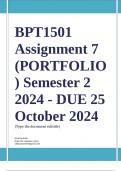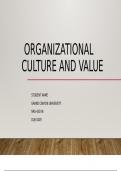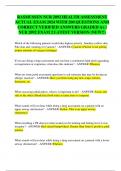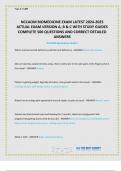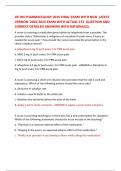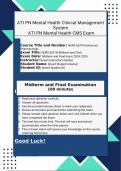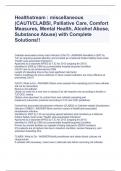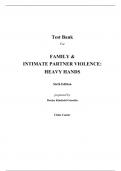Exam (elaborations)
BPT1501 Assignment 7 (QUESTIONS & ANSWERS) Semester 2 2024 - DUE 25 October 2024 ;100 % TRUSTED workings, Expert Solved, Explanations and Solutions
BPT1501 Assignment 7 (QUESTIONS & ANSWERS) Semester 2 2024 - DUE 25 October 2024 ;100 % TRUSTED workings, Expert Solved, Explanations and Solutions
[Show more]
